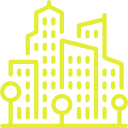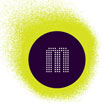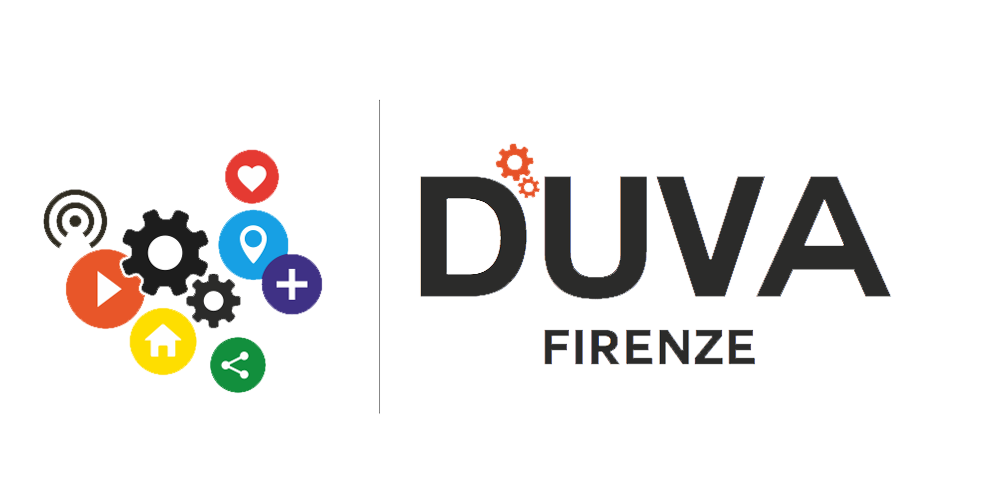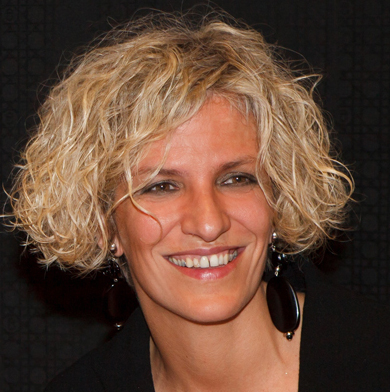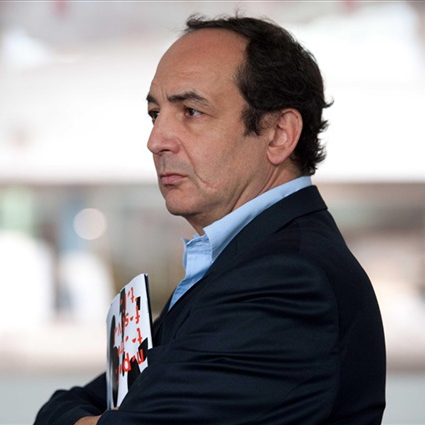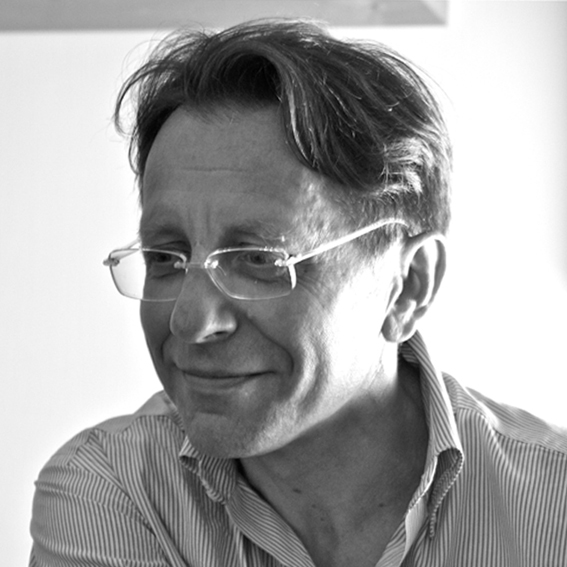On the morning of the 26th of January the participants, after registering, will together carry out a digital invasion within the complex of Santa Maria della Scala (to know more about digital invasions check the website www.invasionidigitali.it ) and will therefore be able to live the physical experience of the visit which they will then have to transform into a digital interpretation.
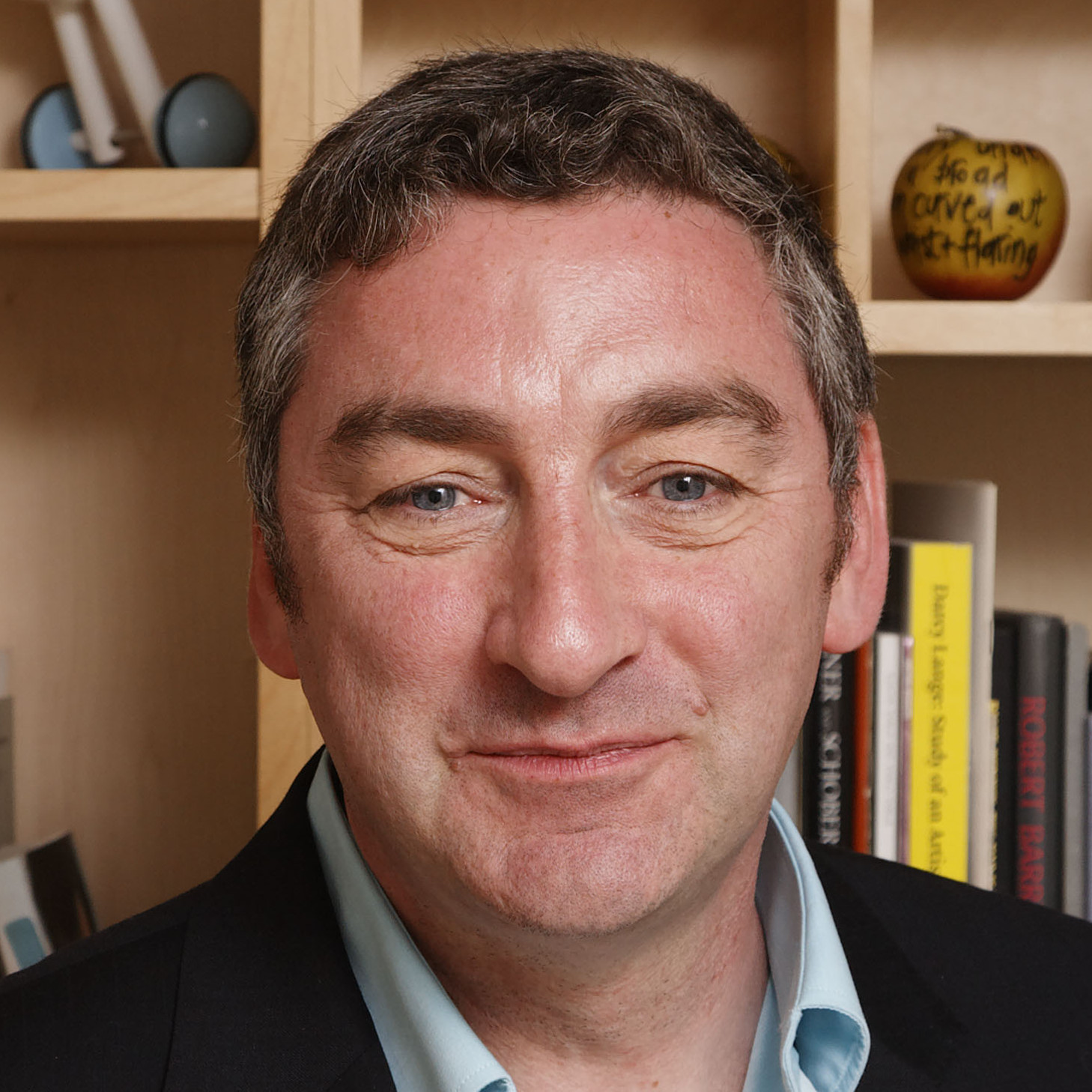
Tony Trehy
Director of Bury Art Museum (Greater Manchester)
Profile
Tony Trehy is the Director of Bury Art Museum in Greater Manchester. Uniquely for a local authority gallery, Trehy has created a 21st Century vision of public culture developed in the context of the opportunities of globalisation which redefines the Local and culture as economy. He is an international multi-artform curator, and also the director of the international Text Festival – the world’s only language art festival. Since the 1990’s he has also commissioned more than 30 public art works on the Irwell Sculpture Trail - one of the UK’s largest public art schemes. He is also a published poet with 6 books currently in print.
Abstract
"How not to be national."
Tony Trehy sets out to explain how a medium-sized provincial museum located in the satellite town of a major city can successfully leap-frog regional and national structures to operate innovatively on the international stage. Leading and developing approaches that allow an institution to be fast, flexible and responsive to change, creatively connected across artforms, and exploring new methods of working that make international partnerships productive; Find out how they can be sustained and grow over time; how risks are balanced and innovations result. What are the pitfalls, and challenges to joint working and how to overcome them.
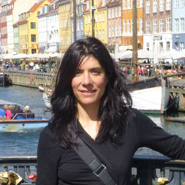
Raquel Mesa
Web Manager - Digital Strategy at Acción Cultural Española, AC/E (Madrid)
Profile
Raquel Mesa is Web Manager and Digital Strategist at Acción Cultural Española (AC/E). AC/E is the Spanish Agency for Culture, which belongs to the public sector. Its aims are to promote Spanish culture and its art-historical legacy and heritage, both in Spain and overseas; to support the internationalization of Spain's creative and cultural sectors; and to encourage a Spanish presence at significant international cultural events. Raquel has a degree in Archaeology and Prehistory from the Complutense University in Madrid and an MA in Cultural Management from the Instituto Ortega y Gasset. She first worked in Madrid for the publisher El País-Aguilar and then in Rome at the Spanish Tourist Office. In 2000 she started working in Spain's cultural sector. In 2002 she became the web, graphics and publications coordinator at SEACEX (the State Corporation for Spanish Cultural Action Abroad) until 2012, when she started working at AC/E.
Abstract
"Analysing Digital Trends in Museums"
The AC/E Annual Report is an annual document of reference organized and published by Acción Cultural Española (AC/E) that analyses the development of digital trends in the world of culture and focuses on a specific sector or discipline each year.
The aim of our study is to detect the most innovative technologies that cultural institutions are currently using, in addition to analysing a few, which, despite having been around for years, are being used creatively and dynamically, renewing concepts and attitudes in the taks of professionals and institutions.
In 2015 edition we set out to explain the benefits that techonology can bring to museums. Through examples of good practice, our Focus on Museums guides this institutions to incntroducing these technologies so they can adopt them. To observe trends in technology and explain how they can be adopted in the museum
sphere is another of our aims.
Technology offers excellent possibilities for integrating the global community and for disseminating and co-creating knowledge and content. The examples we have examined highlight this reality.
In the AC/E Annual Report, we have detected that a broad spectrum of museums use all kinds of mobile applications, QR codes, touchscreens, sensorial technology, geolocation and augmented reality, among other technology, to develop new services that allow them to enrich the discovery process in their exhibitions and activities, as well as interconnections between visitors.
Technology is proving to be a fantastic tool for meeting the needs of regular visitors to museums and, naturally, for broadening museum audiences. One of the main objectives of museums is (or should be) to cater to as many people as possible.
New websites, the social media, the digitisation of documents, crowdfunding and many other digital strategies that are being adopted have allowed museums to venture beyond their own walls as never before, making them accessible to anyone with an Internet connection, wherever they are. The possibilities of communicating, and of promoting and disseminating the heritage museums house are multiplied. And so are the possibilities of engaging and constructing content and experiences with the user as well.
Today’s museums are not unfamiliar with technological advances and after several years of feeling mostly ill at ease or shy about taking on challenges to introduce technologies of this kind, today we scarcely find any institutions that have not incorporated changes in web technology, applications and interactive devices that offer greater immersion or enjoyment during the actual visit.
As we have seen throughout this study, there are plenty of options, though this does not mean that each museum should embrace them all.
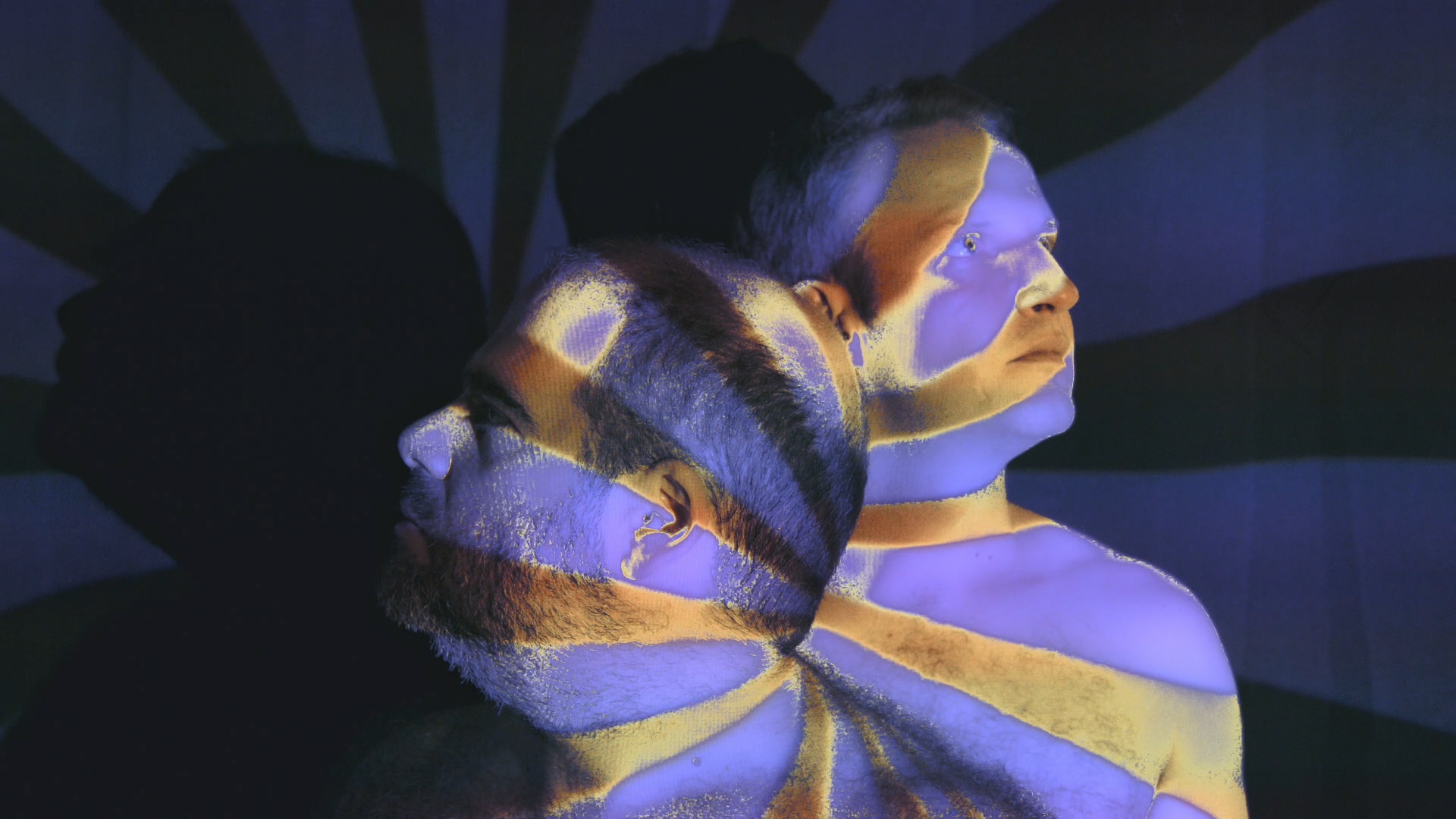
N2U Art
Art Group (Paris)
Profile
N2U is a group of 2 French artists, Eric Szerman and Camille Turlot, trained musicians and writers. For 10 years, they created theatre in Paris (Award winning “The outcast”), pushing the boundaries of subject and storytelling. As an organic part of their artistic development, they started working on video-installations and art performances, with a DIY attitude. In 2016, Their work “Anthropomorphing” and “Don’t look the sun” won 3 awards at Le tripostal, Lille and their video art “Andalucia” was part of the International Video Art AVI Festival in Jerusalem.
Abstract
"Anthropomorphing, a digital live performance"
What’s better to talk about art than art itself? Anthropomorphing is a new form of visual narrative performance, technological, playful and educational.
The idea is to create a story in relation with an art collection in which one performer interacts with the animated work of arts on the screen. This concept allows audience to perceive and feel an emotional connection to the collection,
so the experience of the museum visit is enhanced thereafter. For the demonstration, we will perfom “Project Prometheus”, a mock-presentation of a new technological revolution, presented by a Steve-Jobs-inspired characterWhat’s better to talk about art than art itself? Anthropomorphing is a new form of visual narrative performance, technological, playful and educational. The idea is to create a story in relation with an art collection in which one performer interacts with the animated work of arts on the screen. This concept allows audience to perceive and feel an emotional connection to the collection, so the experience of the museum visit is enhanced thereafter. For the demonstration, we will perfom “Project Prometheus”, a mock-presentation of a new technological revolution, presented by a Steve-Jobs-inspired character
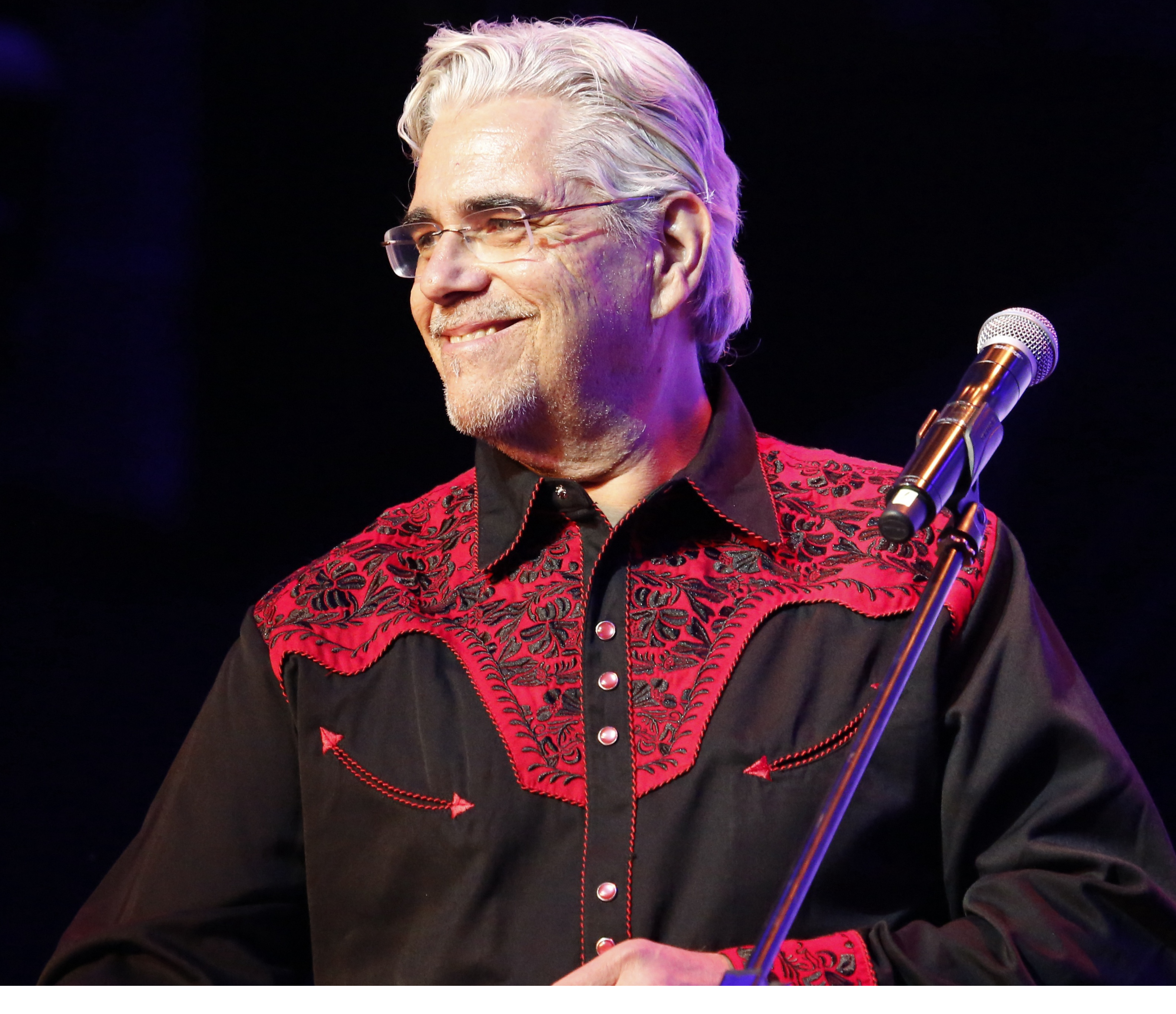
David Moss
Musician and artistic director of the Institute for Living Voice (Berlin)
Profile
David Moss is considered one of the most innovative singers in contemporary music. He has performed his solo and theater work from New York (Lincoln Center) to Venice (Theatro La Fenice) to Brisbane (Festival). In 1991 he received a Guggenheim Fellowship; in 1992, a DAAD Fellowship (Berlin). Moss has sung with the Berlin Philharmonic under Sir Simon Rattle, and made his Carnegie Hall debut with the American Composers Orchestra. He was twice a featured soloist at the Salzburg Festival. He was a 2008-09/2016-17 fellow of the “Interweaving Performance Cultures” research center at the Freie Universität, Berlin. He has been the artistic director of the MADE Festival in Sweden and is the co-founder/artistic director of the Institute for Living Voice , which has conducted master classes, workshops and seminars internationally since 2001. He performs with the electronic groove trio, Denseland, and the audio performance group, Technologies. In 2016 he celebrated 25 years living in Berlin by curating a concert for the DAAD MikroMusik Festival, performing in Warsaw Autumn Festival and Wroclaw Cultural Capital, collaborating with visual artist Lillevan, and sonic wizards Andreas Bosshard and Sam Auinger, and singing with Belgian keyboard virtuoso, Daan Vandewalle, in a new version of the Goldberg Variations
Abstract
"Who will sing, who will speak, in the 22nd century? a voice manifesto" We are alive now. We are human, homo sapiens, with muscles, blood and voices. We burn oxygen and create energy in our bodies, and thus we can SPEAK. We breathe in air and breathe out meaning and music. Will this continue forever? Has it always been this way? Do we own our voices — our frequencies — our emotional responses to the human voice? Today, here and now, we feel we are on the cusp, the edge of revolutionary changes. Anything that affects how we interact with the world, impacts our voices, enhances or distorts our speech, emotionalizes or neutralizes our daily life will, per se, radically alter our PRESENCE and POWER as human beings. So, a possible question becomes: Who will sing, who will speak, and how, in the 22nd century?
Photo Credits: with permission of the Beijing Music Festival
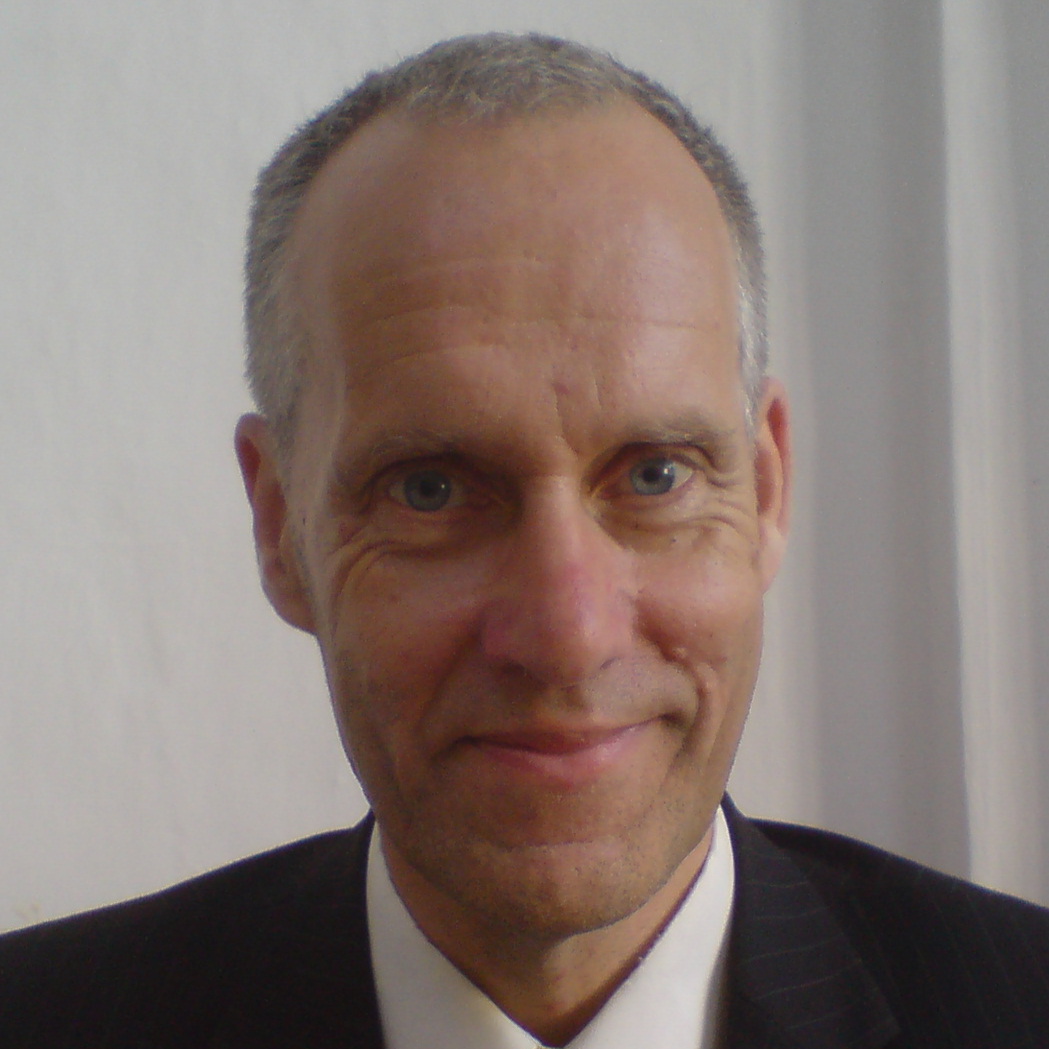
Stuart Thompson
Policy Analyst, OECD Centre for Enterpreneurship, SMEs, Local Development and Tourism
Profile
Stuart Thompson works for the OECD Centre for Entrepreneurship, SMEs, Local Development and Tourism where he concentrates on issues related to SMEs and entrepreneurship, in particular regarding internationalisation. He joined OECD in 2012, working in Trento, and has been based in Venice since March 2016. He has spent more than 20 years as a consultant specialising in SME development issues, both in transition countries and in the UK. His work has been at all levels, from assisting local SME development centres and actual SMEs to advising on policy at ministerial level. In the first years of EU support to transition in Eastern Europe he acted as the European Commission’s single SME technical advisor, working on the initial programmes in a number of countries.
Abstract
"Drivers for change in the field of culture."
The process of change in institutions can be difficult, particularly for organisations whose existence is based on history and preservation of the past. This presentation will examine both the drivers for change for museums and cultural institutions in today’s globalised world, and the factors which can ensure success or failure. Examples will be given from a variety of sources and some general lessons extracted for further discussion.
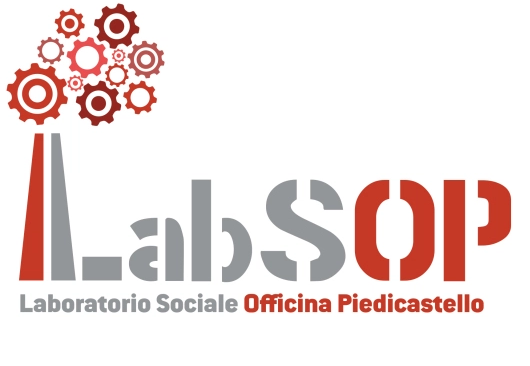
Officina Piedicastello
Social Lab
Profile
LabSOP is a common space of thought, participation and active citizenship on themes relating to the life of the Piedicastello quarter. To the rebirth of its spaces and to its relationship with the city. LabSOP is inspired by the principles of the “Guidelines on the collaboration between citizens and the administration for the treatment and the renewal of the common city goods” recently adopted by the municipality of Trento. LabSOP is a laboratory committed to experimenting repossession and common management practices for urban spaces. LabSOP is prone to stimulate new forms of participation, skill growth and strategies, through programs, projects and actions involving all parties invested in the future of the quarters and the city. LabSOP is a project of social urban renewal. It is finalised to build a follow-up of the collective project that will place front and centre the themes of territorial rebirth, increased asset value and reactivation of the dismissed heritage in the city agenda. Associations and collectives gravitate around the Laboratorio Sociale Officina Piedicastello, within the activities of the “Idee al Bersaglio”. Ingegneria Senza Frontiere: ISF is an association that deals with international cooperation and it intends to create a common project space at the “North” and the “South” of the World in which to elaborate, create and spread engineering practices and techniques that are able to favour a complete fulfilment of all the individual and human communities. “COMMONS”cultural association: the association operates in the field of promoting culture, social awareness and sports, without distinction of age and gender, posing itself as an instrument of bonding between all generations present in the provincial territory, by organizing and facilitating cultural, artistic, musical, social, sports, culinary and entertainment activities, especially linked to local tradition. ADS Polisportica Clandestina: the amateur sport association operates in the field of promoting integration through sport activities. Richiedenti terra: the association runs a communal vegetable garden near the station of Villazzano(TN), pursuing the following objectives: promote social and environmental conscience of the participants and of the sympathizers through practices of urban agriculture and also favour integration between different age groups and cultures: it favours the recovery of unused spaces in the urban and suburban areas; to deepen the participants’ knowledge of “soft”non-invasive agricultural techniques and also develop and fortify on an individual and collective level the importance of active citizenship towards the goal of so-called “agricivismo”, of environmental sustainability and dietary sovereignty. Cinemafutura: is a collective showing cult, independent, unknown, forgotten movies: for old movie buffs, young enthusiasts, all of those who still believe in the magic of the “Big Screen” and of the dark movie theatre. Among its main objectives there is the rediscovery/revaluation of Italian cinema the promotion of movies which have little to no distribution in Italy, a specific research on short movies, the premiering of independent movies, mostly documentaries, often with the directors being present.
PENSANDO MERIDIANO. Permanent laboratory of sustainable cultures, innovation and social bonds, it is an association of young people, all under the age of 35, c from shared university experiences before and after graduating in the province of Reggio Calabria and has then expanded towards other young people (in Calabria and Sicily). The association is born with the goal of formation and information of young people through a competent and collaborative network for opportunities and projects that will be highly innovative and create social bonding, on the themes of sustainable culture and on open and shared spreading of ideas in the cities and the communities. Pensando Meridiano acts by applying tactics and strategies of social urban renewal through the processes of participation, of social, territorial and viral communication on the web. The young associates of Pensando Meridiano are “the makers” that coordinate and take part in urban and territorial actions, by directing the networking process between active subjects for social, productive and sustainable development of the contexts. Ongoing co working and formation organized in innovative spaces such as ‘Officine Sostenibili ed Ergosud’also involve other experiences on local, national and European scale projects. The practices of “city making” and “creative city”are made by using the tactic of ‘auto build and recycle sites and ‘event construction site’. You can take part to Pensando Meridiano’s activities as an ordinary under 35 Associate, as Supporting Associate and Honorary Associate. The Connecting Associates are those that promote the activity of the association in the southern territory with the aid of the young people directing the lab. The Maker associates are active in the lab with continuous activities and form the Lab Community and can take advantage of the credits in the formative CV. The association also detects during its course of action cultural personalities who are coherent with their mission. The Community of Mentors, is therefore forms on invitation and has no statutory role or title in the association, but simply of reference, support and entourage in the actions that the Lab detects and carries out.
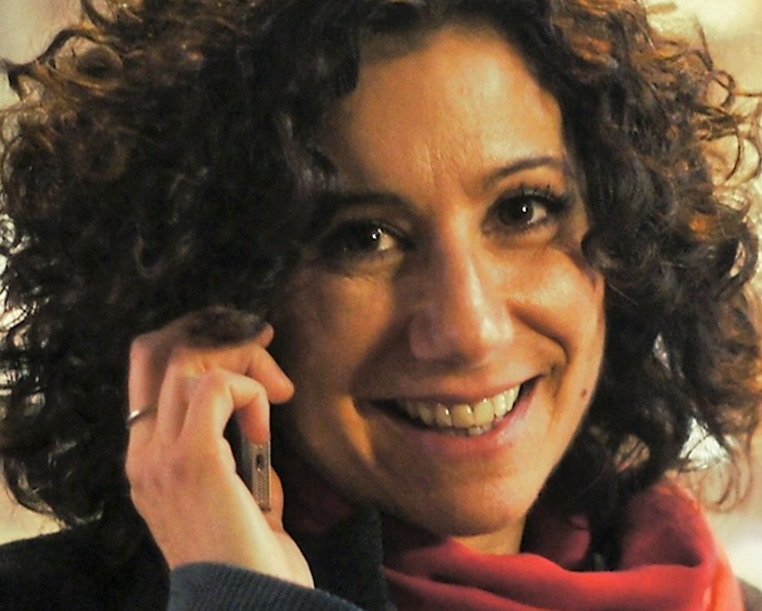
Marianna Marcucci
Co-Founder Invasioni digitali
Profile
Raised between Italy and Corsica, after going to the literary college, I’ve graduated in Pharmacy knowing that I would’ve been in a lab, but not a chemistry one! During my time at university I started working in the world of tourism, following many training courses within the sector to satisfy my curiosity and improve my knowledge. I have managed and collaborated with various hotels, by taking care of key decisions that had me managing the activities of the structure and the development of marketing strategies, including revenue management. I’ve started various freelance projects, in order to expand my working experience: I’m senior consultant for “Mind Lab Hotel”, a society that was born through the desire of various hotel managers to gain confidence with marketing, social media and revenue management. In the last few years my attention has focused on the opportunities that the web can offer to the world of tourism, art and culture. Following such research I am cofounder of Invasioni Digitali, an initiative born in 2013 with the objective of promoting and giving value to people’s involvement in actively experiencing the cultural heritage. Promoting culture, history and beauty through the Social Network. I have been part of some management committees, including the Ente Bilaterale del Turismo Toscano, a non-profit organization between businessmen and unions; Federalberghi, the association comprised of hoteliers organizing their contracts, developing activities and promoting training. I’ve decided to end my experience in the field of associations to dedicate myself fully to other activities. Currently I’m involved in projects linked to digital culture as a workshop and creative marketing strategies for museums and cultural institutions (Europeana and Maxxi Museum); promotion and appreciation of tourist destinations; lectures, course and management and marketing strategies for travel destinations.
Abstract
"Digital reputation. The importance of knowing how to listen to our public"
Facebook, TripAdvisor and the allies, which a museum can count to know itself better.
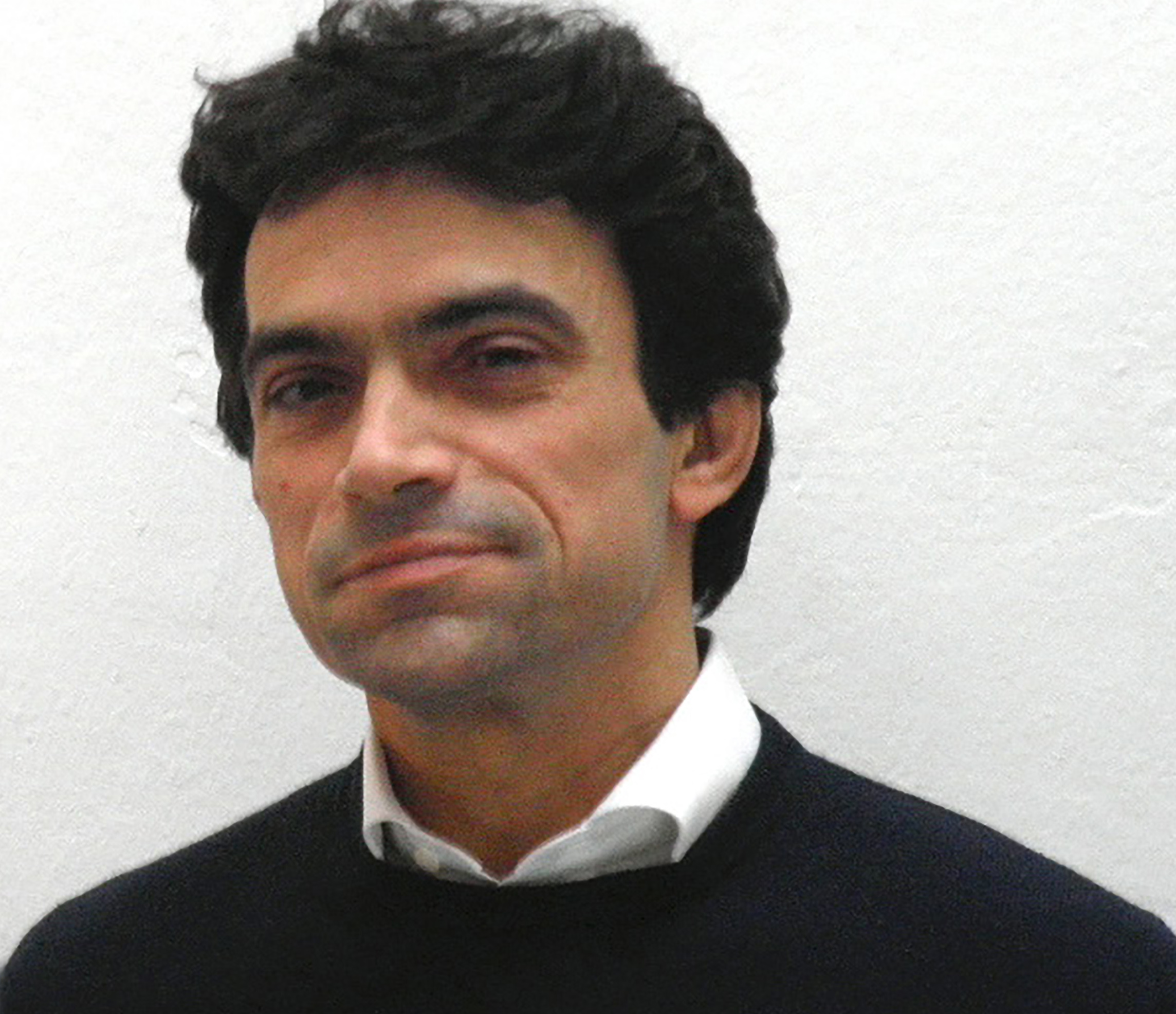
Giovanni La Varra
professor of architectural planning at the University of Udine
Profile
Architect, born in Milan (1967), is a research doctor in territorial planning. He has taught urban planning and composition at the architecture faculty of the Politecnico in Milan and at the Literature and Philosophy faculty of the State University in Milan. Since 2014 he is an architectural planning associate professor in the University of Udine. He begins his professional career in 1994 and 1999, with Gianandrea Barreva and Stefano Boeri, he cofounds Boeri Studio. The research activity done for the Politecnico in Milan has seen him taking part with the role of coordinating research reagarding the ‘Metrobosco’ project (promoted by the province of Milan), in the research “Milan. Residents’ chronicles” (Bruno Mondadori, 2007), the study on the practicality in rescuing Cagliari’s Sant’Elia quarter (commisioned by Area, Cagliari), and the ongoing research “The Cell and the Territory”, on the recovery of abandoned italian hamlets to be employed as alternative jails (with the PRAP of Milan). From 2009 to 2011 he has been a consultant for Renzo Piano’s office for the processing of the Master Plan for the Expo Area in Milan in 2015. He has directed the exposition “Post it City”, a research on the temporary and self organized forms of public space usage, promoted by Barcellona’s Centre of Contemporary Culture (cccb catalogue, 2008). With the Multiplicity research agency he has promoted and carried out research and installations on contemporary urban conditions, such as USE-Uncertain States of Europe (a reconnaisance on the future of the Eurpoean territory introduced in Bordeaux in 2000, in Bruxelles in 2001, in Tokyo and in Milan in 2002) and Solid Sea (a research on the Mediterrenean, shown in Vienna, Berlin and Rotterdam). Since January 2008 together with Gianandrea Barreca he gives birth to the Barreca & La Varra Professional Studio, with whom he develops important projects in Italy and abroad. In 2014 he has won the “International Highrise Award” for the vertical forest done in Milan. The projects he has carried out have been published by numerous architecture and design magazines. He has published articles, essays and reviews for casabella, domus, abitare, territorio, urbanistica, il sole 24 ore, urbanistica quaderni, paesaggio urbano e arch’it. In 2012 he published “Barreca&La Varra. Questioni di facciata - a matter of façade”, for Skira Editore. Still in 2012 he has published a novel titled “Case Minime” (Robin Editore). Since 2013 he is the curator of the column “Italian Compilation” on Abitare online and since 2015 he is the vicedirector for ‘Viceversa’ magazine
Abstract
"What are we talking about when we say urban renewal” Urban renewal concerns the whole city and the entire territory. If the nineteen hundreds, for European cities, was the century of growth and expansion, the twenty first will be centred around a different paradigm, aiming at adapting, thin out, and regenerate cities and territories. With this view the lecture poses some general considerations on the operating principles centred on the “types” of textures, city spaces and territories to be reborn.
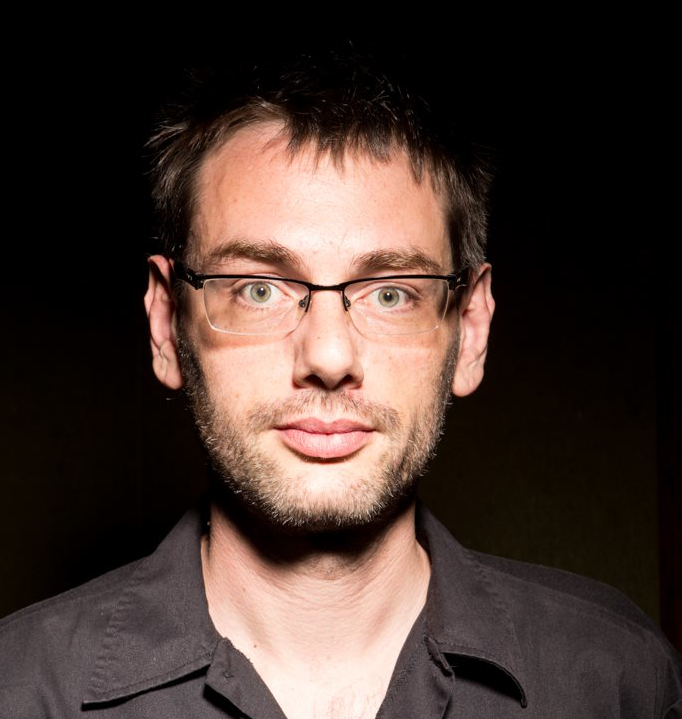
Bertram Niessen
Chairman Che Fare
Profile
He takes care of cultural transformations, collaboration practices, urban spaces and digital relationships. He is the science chairman of the cultural innovation platform cheFare. Since 2003 he teaches in graduate and post-graduate courses in all of Italy. He has obtained a PhD in Urban European Studies at the University of Milan-Bicocca. He seldom writes for various headlines: IL, La Domenica – Il Sole 24 Ore, Doppiozero, Nòva, Artribune, Vita, cheFare.
Abstract
"Collaborative practices in the contemporary city" The contemporary city is shook by numerous tensions, made more evident by the speeding life and work rhythms and by the new economic and financial situation. The reactions to these tensions emerging “from below” are numerous, diversified and often contradictory. But it is to these realities that we have to look in order to seek the answers we need, between critiquing the contemporary, searching for meaning and new forms of social bonding.
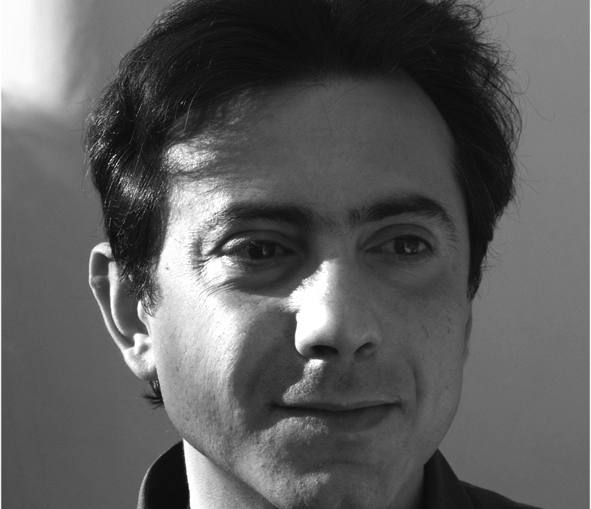
Antonello Marotta
Professor of Architectual planning, Sassari Univesity
Profile
Architect and research doctor. He teaches in the Department of Architecture in Alghero, University of Sassaro, where he is a confirmed researcher. Among his books are: Ben van Berkel, the overturned perspective of the UN Studio; Diller + Scofidio, Theatre of fade-out; Daniel Libeskind. He has investigated the themes of modern times and memory in the books: Toyo Ito. Building Emptiness; Mansilla + Tuñón and Atlas of Contemporary Museums. He had recently published the book: Archeologies. The project of memory and time.
Abstract
"Il Museo come memoria evolutiva: dal palazzo-teca all'inserimento nel contesto naturale." The lecture analizes the passage from the nineteenth century idea of city-museum, to the evolutions touching on modern themes, based on the principle of the evolutionary spiral. In the eighties and nineties we witness a spatial and cultural change bought forth by the currents of post-modernity and deconstructionism, where the museum gets transformed from a list of quotes to transplanting and digging in an historical building. The last frontier sees the museum as a process of completion of natural and artificial environments, like caves, ad like a way to transform the memory for military buildings, such as bunkers, pertaining to the second world war.
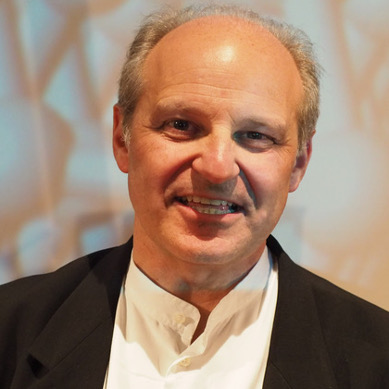
Nicola Sani
Composer, Art Director Chigiana Academy Siena
Profile
He has studied composition with Domenico Guaccero, specializing with Karlheinz Stockhausen and electronic composition with Giorgio Nottoli. Author of works, symphonic, chamber and intermediate compositions played all around the world. Superintendent of the Municipal Theatre of Bologna, art director of the Chigiana Academy of Siena. Prix “Ars Electronica”, Linz-Golden Nica, Guggenheim Award, Prix Italia, Erato Farnesina award of the Ministry of Foreign Affairs. With the Municipal Theatre of Bologna he obtained three Abbiati prices for three productions in the 2015 season. “Knight of the Order of Literature and Arts” of the French government, the British counsel awarded him with the “New Connections Recognition Award”.
Abstract
"The new Chigiana for a redefinition of the musical offering" The social and economic changes of the latest years that have involved the cultural and musical sector, both italian and local, have made a process of redifinement and renewal necessary for the Accademia Chigiana, starting from its strong points and keeping in mind its weaknesses and the potential threats to be faced, with the objective of adapting the Institution to the new scenarios and horizons of the social and cultural international context and to the changing needs of the territory concerning the basic cultural and musical necessitites.



